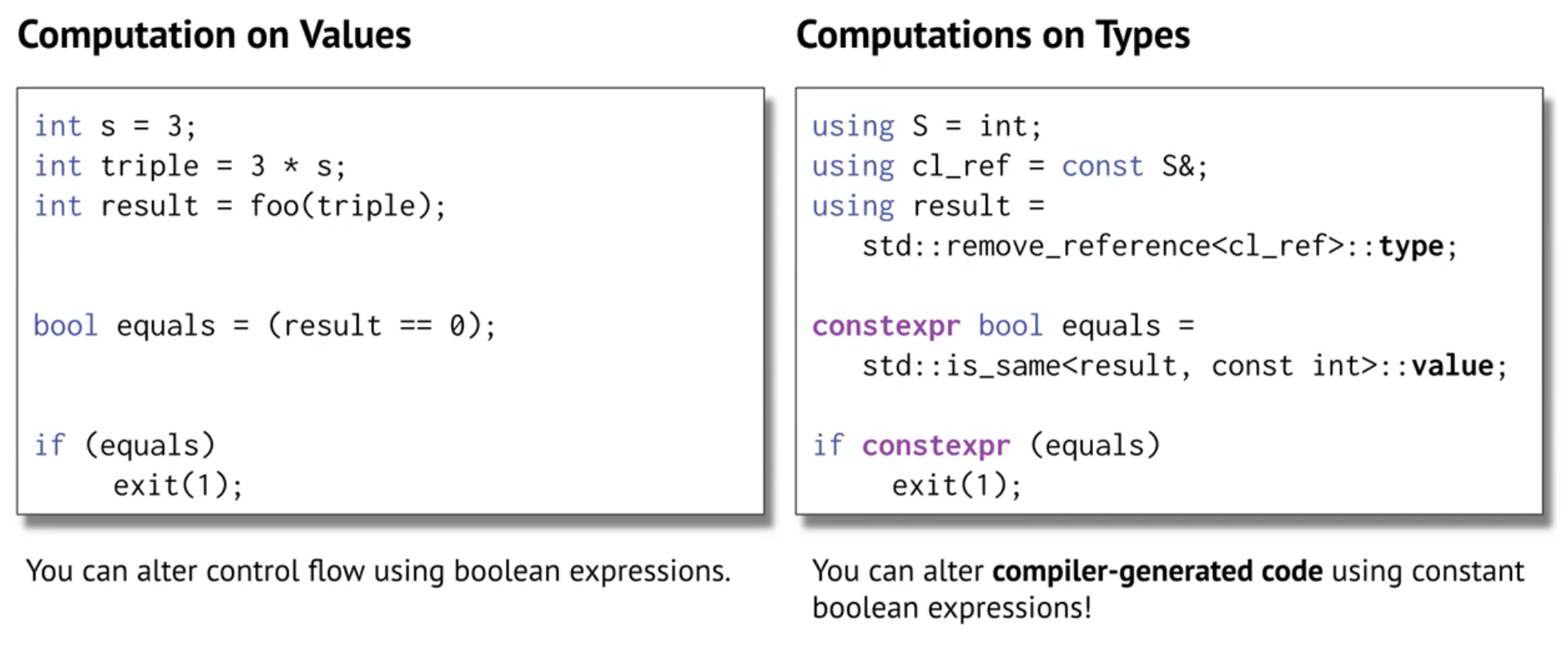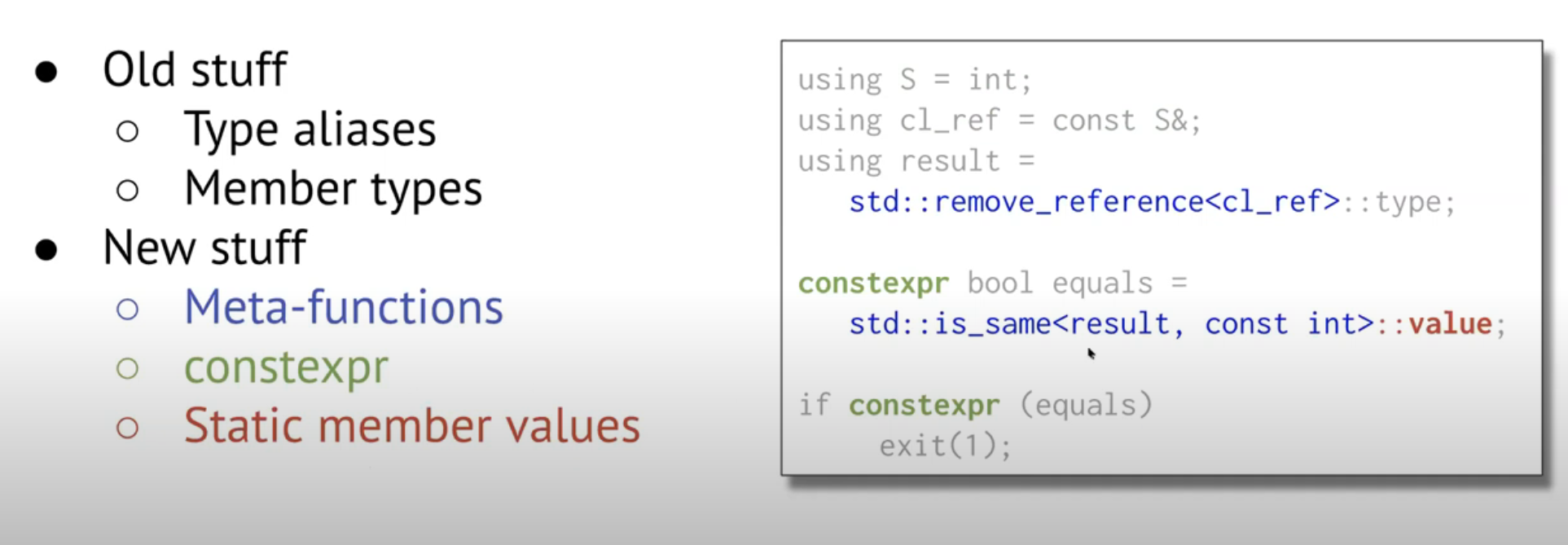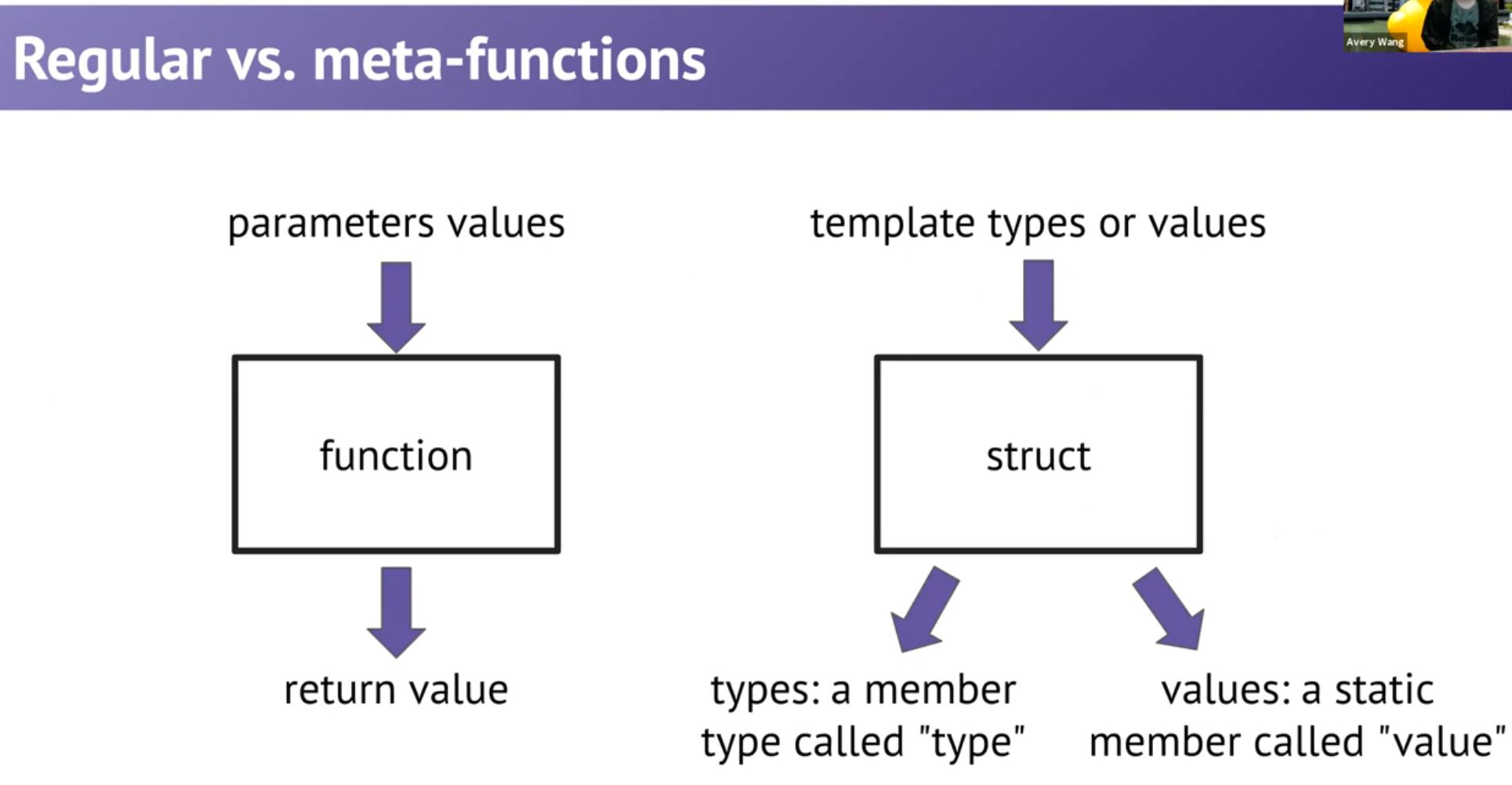Guest Lecture: Template Metaprogramming¶
Prerequisite: typename 的用法¶
-
声明模板参数,如:
template <typename T>。不多解释。 -
声明嵌套类型,如:
template<typename C>
void print2nd(const C& container){
if(container.size() >= 2){
typename C::const_iterator it(container.begin());
++it;
int value = *it;
cout<<value;
}
}
此处,如果没有 typename,C++ 会默认将 C::const_iterator 当作一个变量/静态成员。
Introduction: the my_distance function¶
我们希望实现一个泛型的距离函数,可以返回两个迭代器之间的举例:
但是,这个函数只适用于 random access iterator。
template <typename It>
size_t my_distance (It a, It b) {
size_t result = 0;
while (first != last) {
++first, ++result;
}
return result;
}
但是,这个函数对于 random access iterator 而言,太慢了。
我们希望兼顾两者——对于 RAI,就用上面的方法;对于非 RAI,就用下面的。
Type Computation¶

There are old and new stuffs in the image above:

Regular vs. meta-functions¶

Example:
template <typename T>
struct type_identity {
using type = T;
};
template <int V>
struct int_identity {
static const int value = V;
};
using K = type_identity<int>::type;
int val = int_identity<3>::value;
Note: We use struct to simulate a function. But struct itself, by essence, is NOT a function.
Summary:
- Meta-functions are structs that treats its template types/values as the parameters, and places the return values as public members (i.e. member types and static member values) .
- We never need to create an instance of the struct
- say, we can add
<constructor> = delete;to prevent anyone from instantiate it.
Template Specialization¶
You can have a "generic" template, as well as "specialized" templates for particular types.
Most classical (fully specialized) example:
template <typename T> // generic
class vector {
// implementation using an array
// that is resized as necessary
}
template <> // specialized
class vector<bool> {
// implementation using bit array
// so each element takes one bit
}
Also a partially specialized example:
template <typename K, typename V>
struct HashMap {
// generic
};
template <typename K, typename V>
struct HashMap<K*, V> {
// partially specialized
};
template <typename V>
struct HashMap<int, V> {
// partially specialized
};
template <>
struct HashMap<int, int> {
// fully specialized
};
Summary: Deduction Rules¶
The compiler will
- rank all the templates
- and try each one until it finds one that works.
An error will occur only if
- none of the templates work
- or if there is a tie.
More examples¶
Generic and specialized templates resemble "a gigantic if-else statement".
is_same¶
template <typename U, typename T>
struct is_same {
static const bool value = false;
}
template <typename T>
struct is_same <T, T> { // `struct [struct name] <...>` is the special syntax for specialized template
static const bool value = true;
};
remove_const¶
template <typename T>
struct remove_const {
using type = T;
}
template <typename T>
struct remove_const <const T> {
using type = T;
};
Finally, the generic yet specialized implementation of my_distance¶
template <typename It>
size_t my_distance (It a, It b) {
using category = typename std::iterator_traits<It>::iterator_category; // `category` is a type!
// `iterator_traits<...>` can be considered as a vector-valued metafunction
// and `iterator_category` is one of the components of the vector
if constexpr (std::is_same<category, std::random_access_iterator_tag>::value) {
return b - a;
} else {
size_t result = 0;
while (first != last) {
++first, ++result;
}
return result;
}
}
Note: if constexpr is a new syntax in C++17. The if-else condition can be evaluated at compile time, enabling the compiler to discard one of the branches enclosed in the brackets.